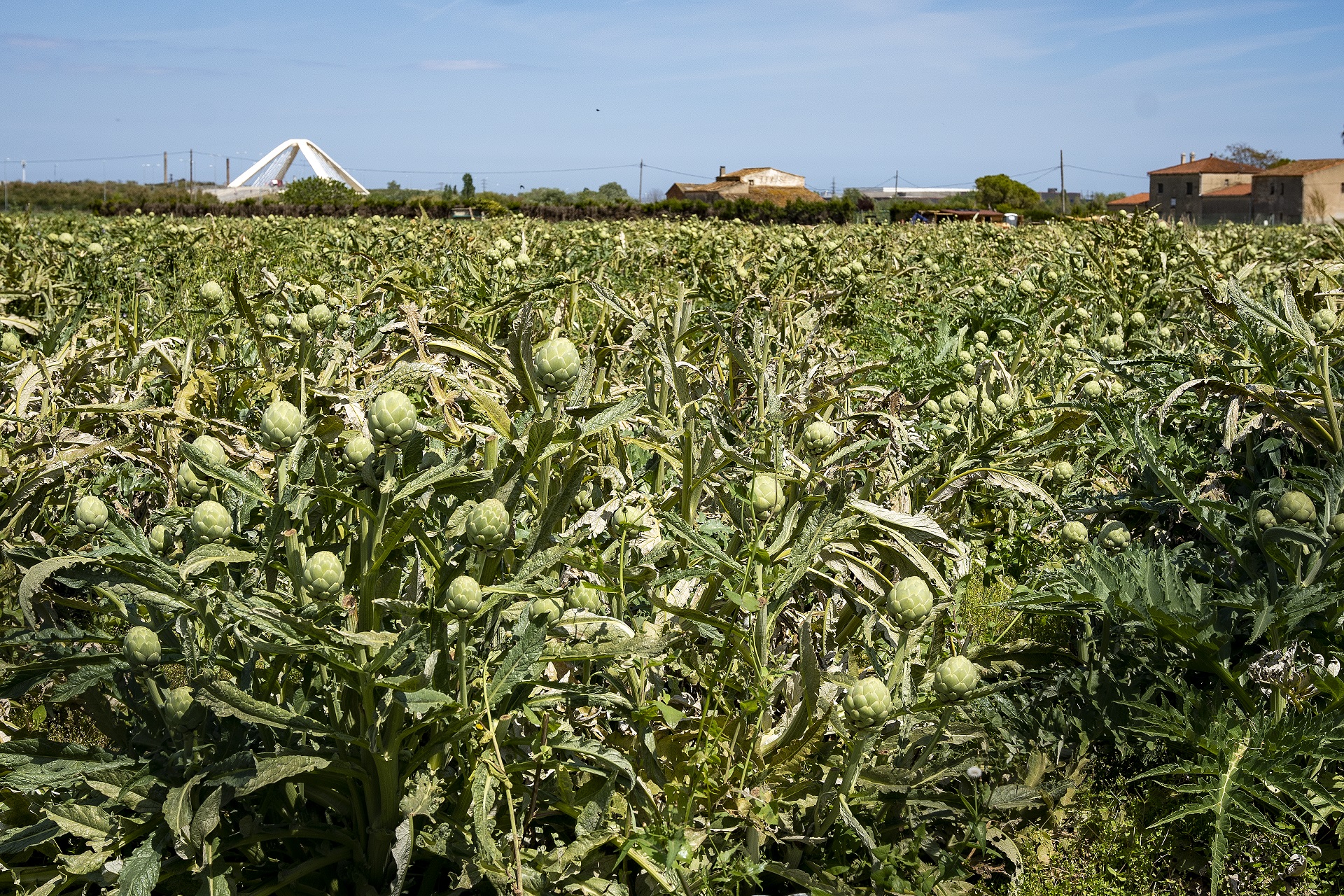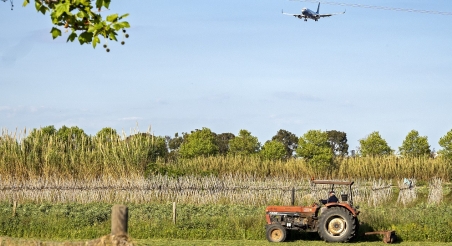The Lower Llobregat Agrarian Park (PABLL) is an agricultural and food treasure that will receive a significant boost from European Next Generation funds. The Park Consortium has been granted one million euros to carry out the "Can Comas" project, which aims to promote the park's values, farming, and its products through an innovative and sustainable agro-tourism initiative.
The project involves establishing a Discovery Center at the Can Comas farmhouse, the headquarters of the agricultural park. This center will feature an interactive and multimedia exhibition to promote the park's agricultural, natural, and cultural resources. Additionally, a mobile exhibition will be developed to increase awareness of PABLL, showcasing locally grown produce and specific equipment for tastings and pairings. These initiatives will help strengthen the connection between the public and the agricultural sector, while also promoting the unique flavours available at the park.
The Next Generation funds will support the establishment of a financing line for PABLL farmers, enabling them to make necessary investments to improve the promotion of their products. Additionally, the public use of the park will be encouraged through the organization of visitable spaces, the revision of signage, and the dissemination of good practices for coexistence and the development of agricultural activities in metropolitan environments.
All these actions will be decided, designed, and created in collaboration with the agents of the territory, and it is expected that they will be executed within two years.
The grant is part of the Recovery, Transformation, and Resilience Plan, financed by the European Union through Next Generation funds. As part of the "Catalonia: Land of Flavours" project, the initiative aims to establish the region as a leading destination for food and wine tourism in Europe.
A model of agricultural preservation and sustainability
The Lower Llobregat Agrarian Park was established in 1998 as part of the Barcelona Provincial Council's forward-thinking plan to preserve and rejuvenate the agricultural areas of the delta and the lower valley of the Llobregat river. This groundbreaking initiative, which received support from the European Union, marked the creation of Catalonia's first agricultural park. Since its inception, the PABLL has served as a model for sustainable development, effectively managing agricultural production while also conserving the landscape and promoting biodiversity.
The PABLL spans across 2,800 hectares, which represents 3% of the arable land and pastures managed by the agricultural parks of the province of Barcelona. It serves as a prime example of sustainable peri-urban agriculture. Committed to preserving agricultural heritage and promoting environmentally friendly practices, the management of PABLL is guided by five strategic lines, 17 specific objectives, and 47 actions. These actions include infrastructure improvement, promoting sustainable production systems, modernizing agricultural companies, and conserving natural and cultural heritage. This comprehensive approach has positioned PABLL as a leader in local food production and in promoting a resilient agri-food model that respects the environment.
An agriculture rooted in the territory
The province of Barcelona currently has nine managed agricultural spaces. These include the Lower Llobregat Agrarian Park, the Montserrat Rural Park, the Lower Tordera Agrarian Space, the Conca d'Òdena Agricultural Park, the Cinc Sènies-Mata-Valldeix Agrarian Park, the Catalan Pre-Pyrenees Rural Park, the Sabadell Agrarian Park, the Gallecs Rural Space, and Palou Agrarian Space. Together, these areas cover 105,560 hectares and serve 62 municipalities by providing local food.
«The support line of the Next Generation funds is not only a great recognition of the work of Lower Llobregat Agrarian Park over time, but also a decisive boost for Barcelona Provincial Council's vision to drive agriculture closer to and connected to the community,» explained Sònia Callau, head of the Agricultural Territorial Directorate (DTA) of Barcelona Provincial Council and coordinator of the BCN Smart Rural program. «It is a step forward towards the consolidation of an agri-food model with an eye to the future, which values proximity, quality, and sustainability, and which strengthens the indissoluble link between the land, farming, and people who consume.»
For more information about the network of agricultural parks promoted by Barcelona Provincial Council, please contact Sònia Callau, head of the AgrarianTerritorial Directorate at Barcelona Provincial Council.



